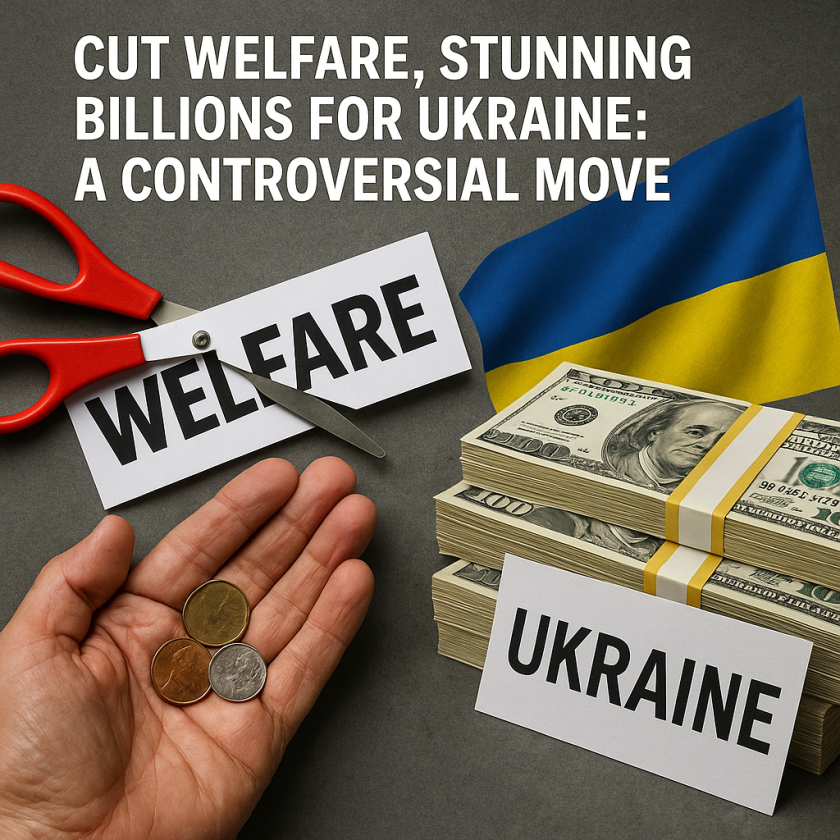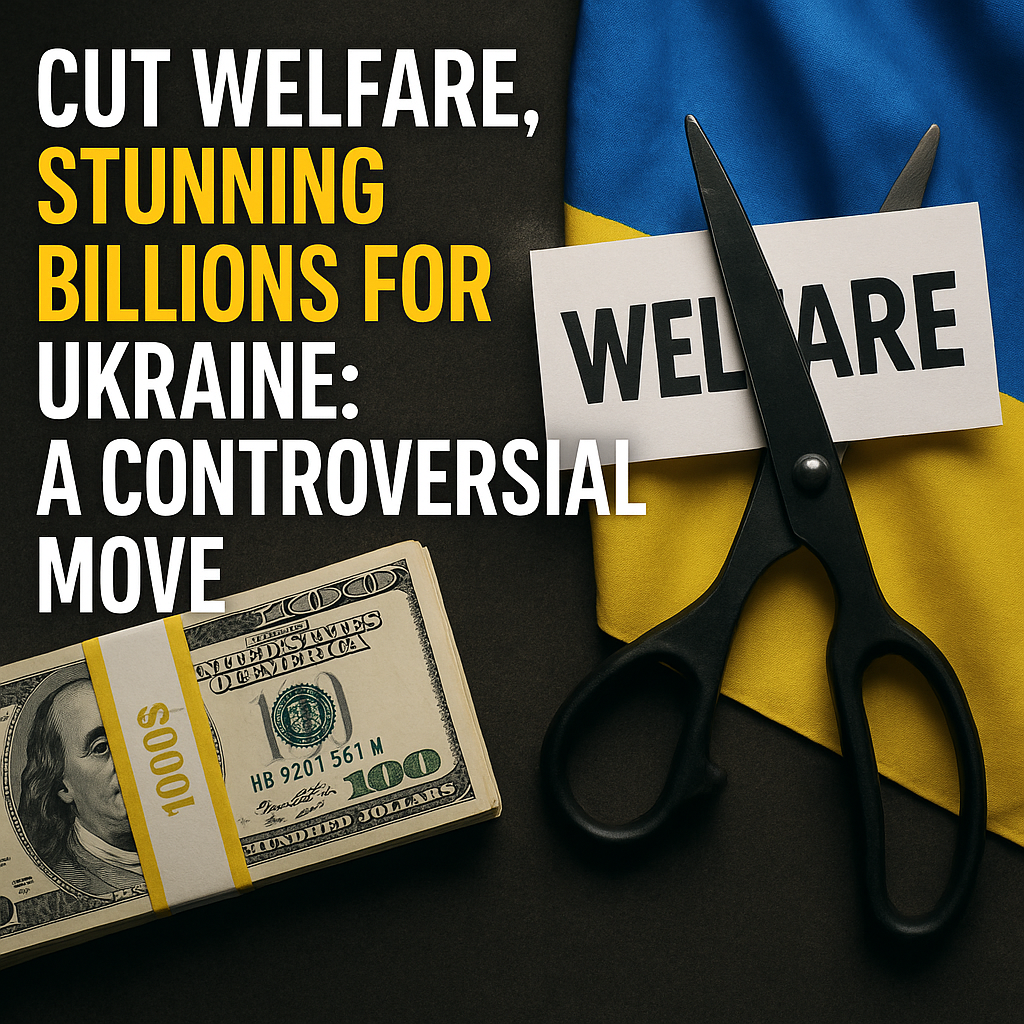Cut Welfare, Stunning Billions for Ukraine: A Controversial Move
Cut Welfare, Stunning Billions for Ukraine: A Controversial Move
Cutting welfare while allocating billions to support Ukraine is a contentious topic that has ignited debates across political lines. As nations respond to international crises, the prioritization of funds raises pressing questions about domestic welfare versus global responsibilities.
The Changing Landscape of Welfare

Recently, discussions around welfare cuts have intensified as Germany’s political landscape shifts. Notably, figures like Friedrich Merz, leader of the Christian Democratic Union (CDU), have stirred controversy by suggesting that welfare benefits should be reduced to allocate more resources for Ukraine. According to Merz, these measures are necessary to handle the increased financial demands resulting from the ongoing conflict.
Advocates for welfare cuts argue that in the face of international emergencies, nations must re-evaluate their budgeting strategies. They view the situation in Ukraine as a humanitarian crisis that necessitates generous support, suggesting that welfare is an area where reductions can be made without immediate harm to vulnerable populations. However, critics raise valid concerns about the potential impact on those reliant on social support systems.
Diverging Opinions on Foreign Aid
The debate is further complicated by differing opinions on the effectiveness and necessity of foreign aid. Supporters of continued aid to Ukraine argue that the assistance serves to uphold democracy against aggression, potentially preventing broader conflicts that could eventually affect all nations, including Germany. They believe that investing in Ukraine is a proactive measure that can yield long-term security benefits.
On the other hand, critics worry that such reallocations may overlook pressing domestic issues. Many citizens are struggling with rising living costs, and they argue that cutting welfare support could exacerbate inequalities and lead to increased poverty. For them, the question becomes whether it is ethical to siphon funds from those in need to finance international endeavors.
Navigating Complex Trade-offs
The controversial nature of this decision highlights a complex balancing act that governments must navigate: prioritization of domestic needs against international responsibilities. While some point to the importance of a unified global response to crises, others emphasize the moral imperative to care for one’s own citizens first.
This dilemma is not unique to Germany but resonates globally, particularly as countries grapple with how to allocate limited resources amid mounting crises. The Russian invasion of Ukraine has prompted similar discussions in various nations, with many reevaluating their priorities and responsibilities.
The Path Forward
As this discussion continues, it is essential for policymakers to engage with their constituents to assess public sentiment and gather input on resource allocations. Transparency in decision-making processes is crucial, allowing citizens to voice their concerns about welfare and foreign aid.
As countries like Germany aim to navigate this challenging landscape, they must consider solutions that balance support for Ukraine while safeguarding the most vulnerable in their own populations. Possible avenues include:
– Targeted Welfare Adjustments: Rather than broad cuts, consider targeted adjustments that take into account individual circumstances.
– Increased Revenue Methods: Implement alternative funding strategies, such as tax incentives for higher-income brackets, to provide necessary support without straining welfare programs.
– Public Engagement: Foster open dialogues with communities to illuminate the real impacts of proposed changes.
In conclusion, the impending decisions regarding welfare cuts and their relation to aid for Ukraine present a multifaceted challenge for political leaders. By weighing the arguments and remaining responsive to public concerns, governments can strive for a far-reaching solution that upholds both social justice at home and solidarity abroad.




































